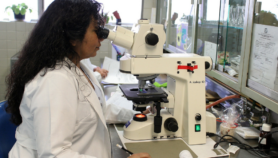By: Deodatus Balile
Send to a friend
The details you provide on this page will not be used to send unsolicited email, and will not be sold to a 3rd party. See privacy policy.
[DODOMA] Tanzania’s minister for higher education, science and technology, Pius Ng’wandu, announced last week that government is to increase funding for science and technology in the current financial year by US$16 million, to US$86 million. And it has promised further increases in future.
“We have learned the lesson that no tangible development, whether social or economic, can be realised without investing in science and technology,” he said in announcing the increase. “As time goes on, we will inject more money in science and technology.”
The money will be used for education, training, research and administration, Ng’wandu said, and the budget includes plans to create a national research library.
Particular emphasis will be given to encouraging women to study science. For example, Ng’wandu said, from this year the government will introduce a national prize for the best five female secondary students in science subjects.
It will also hold a symposium for researchers to tap into their ideas for the development of science and technology in the country, he said.
Despite the promise of additional funding, Bernard Membe, the member of parliament for Mtama, argues that the government is still not investing enough in science and technology.
If the government was really serious about science, he says, it would seek international loans to raise funding for science and technology even higher. He is urging the government to increase the science budget to US$300 million a year.
Speaking in parliament, Ng’wandu admitted that the financial pressures of repaying the country’s national debt had led the government to neglect science and technology. But he said that since 2001, when Tanzania became part of the World Bank’s Debt Initiative for Highly Indebted Poor Countries, the country’s economy has started to improve. This has allowed more funds to be channelled to education, health and water, he said.
He said that nations such as Japan, Indonesia, India, China and South Africa had invested heavily in science and technology soon after their independence, and that partly as a result they are at a higher level of development than Tanzania.













